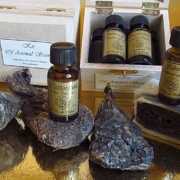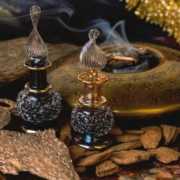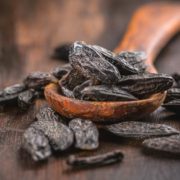Pyramids, lies and mythos of Modern Perfumery
From my house in Lefke.
If you believe that olfactory pyramids published by the industry are meant to give you information about the ingredients or about the smell of a perfume, you are really naive.
Pyramids are but a marketing tool used to persuade you into buying frags.
You missed the point if you believe that the ingredients listed in the pyramids are actually in the fragrances. Pyramids are designed to make you dream of a wonderful world where perfumes are made with real musk, real amber, and real rose…
If it is written “Lavender,” it does not mean the extract of lavender flowers; it means “lavender note,” such as the one you find in dishwashing soap. It smells nothing like lavender, but it is, let us say, “legal lavender” because if it is not written “Lavender essential oil,” it is a “legal lie.”
Olfactory pyramids have been arbitrarily divided into three layers: top notes, middle notes, and base notes.
The problem in categorizing natural essences is that they are almost never just top, middle, or base notes. They often overlap two or even three layers of intensity and longevity. Rose essence is a top and middle note. Tobacco is such a strong middle and base note that you must use it in infinitesimal doses. Angelica is a difficult essence because it is a top, middle, and base note. It will characterize your whole perfume even in tiny quantities.
Olfactory pyramids can give you no indication whatsoever about the perfume, firstly because the ingredients listed are not in the fragrance, and secondly because if they were, they would refuse to behave as the pyramid commands.
But the Pyramids are powerful. After reading them, you may even smell lavender in a perfume where there is none at all, as some reviewers do, because as humans, we smell more with our brains than with our noses.
As a demonstration of this, Avery Gilbert once made a funny experiment: spraying water in the air, he cautioned the public against the smell (saying that it was harmless, what a clever fox he is), carefully building in their minds apprehension and distrust. After a short while, the public averted a bad smell in the air, and some persons felt nausea and had to leave the room.
It was just water.
So, even if you smell some of the ingredients written in the pyramid, know that it does not mean that they are in it.
As my Cypriot friends say here in Lefke: What you see, believe only half, what you hear, believe nothing of it.























…words of wisdom……
…words of wisdom……